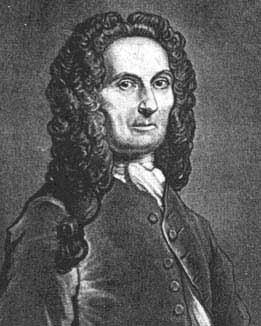He who guessed the date of his death
Abraham de Moivre

The French mathematician Abraham de Moivre - Wikicommons
Probably almost everyone, on those rare occasions when we’ve visited a cemetery, has noticed certain birth and death dates that, by "charming" coincidence, form strange numerical patterns within the months and/or years. This is not the case, however, with the grave of Abraham de Moivre (May 26, 1667 – November 27, 1754), a French mathematician buried in London. Indeed, Moivre’s case stands out not because of any peculiar coincidence on his tombstone, but rather because he knew the exact date of his own death while he was still alive.
As the character Jigsaw from the popular horror series "Saw" said, "Knowing the exact day of your death changes everything," a sentiment that probably resonated with Abraham de Moivre. The idea of knowing our own death date has always intrigued humankind, and some have even attempted to predict it—with surprising success.
De Moivre, the mathematician in question, fled to England to escape religious persecution as a Protestant in France. Once in England, he pursued his studies in mathematics, befriended Isaac Newton in 1692, and published his influential work Doctrine of Chances in 1697, explaining the calculation of probabilities related to various events. Remarkably, he also published a method for calculating mortality distribution based on an individual's age and income—a formula still foundational in modern life insurance.
Despite living just above poverty and never achieving a university post, de Moivre dedicated his life to refining what became known as "de Moivre’s formula", published in 1722. However, it was in the final years of his life that he devised a formula that made him famous beyond mathematical circles: a calculation to predict his own death.
According to scarce accounts, de Moivre observed that he was sleeping slightly longer each year—15 minutes more per year, to be precise. He concluded that when his additional minutes of sleep totaled a full 24 hours, his time would come. After performing some mysterious calculations, he pinpointed the date as November 27, 1754—a date that, whether by coincidence or not, aligned precisely with his actual death.
Site: StackExchange, "Did Abraham De Moivre really predict his own death?", (viewed November 2024)
D. R. Bellhouse, "Abraham De Moivre: Setting the Stage for Classical Probability and Its Applications", A K Peters/CRC Press, 2011
2025-02-16
Salvatore Ciccarello
